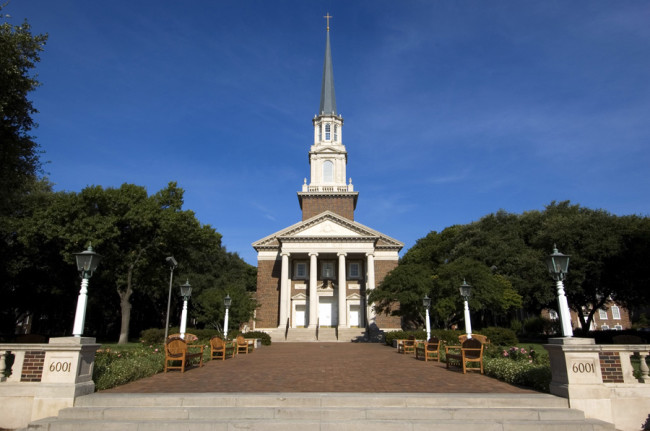
Seniors Allie Hays and Katie Smith may be approaching the next chapter in their lives, but the idea of marriage within the next five years is a laughable matter. Their reasoning may be self-serving but not because they want to live life in vice and participate in reckless behavior. Both girls expressed their need for personal achievement before settling down.
“It depends where we are in our lives,” Hays said.
“I think you’re both doing your own thing. You’re both growing and changing,” Smith said.
Hays and Smith are not alone in their views against marrying young. A study conducted by Pew Research Center in 2013 revealed a sharp decline in marriage among Millennials, ages 18-33, compared to generations in the past. The decline of marriages among Millennials is approximately half of the percentage of their parents’ generation. In a study done in 2008, younger people felt that having a successful career, social status and a fulfilling sex life were easier to accomplish while remaining single.
Where a Millennial is from can also affect their intention to marry. Pew Research Center revealed that 71 percent of those who were unmarried in the South said they wanted to get married, compared to the 49 percent in the East, 53 percent in the West and 60 percent in the Midwest. While this school of thought varies regionally, college students across the country seem to have the same mentality.
A small survey of students from University of Wisconsin and Southern Methodist University was conducted to test if the contrasting cultures had different sets of values. Regardless of their answers all participants brought up the topic of wanting financial stability before settling down.
SMU students who were for marrying within the next five years versus students against it were almost equally split 42 percent and 57 percent. On the other hand, 75 percent of the students who took the survey at University of Wisconsin were against marrying young. All participants expressed their anxiousness of economic stability and were cautious of prematurely marrying, fearing they may marry the wrong person.
“I want to date the person for a long time, so if I met them close to that five years, I wouldn’t want to marry them right away,” UW student Michelle Croak said.
It’s the era of uncertainty, where good fortune and security aren’t promised for tomorrow.
“I also want to focus on a career and even if I meet the person I want to spend my life with, there is absolutely no benefit to rushing into marriage,” UW student Katelyn Youngblood said.
Millennials have witnessed and experienced economic hardships when the job economy plummeted with the Twin Towers in 9/11. The growth of the Internet and globalism caused Millennials to not only compete with their peers for financial security, but with the world.
“The economic hardships of young adults may be one reason that so many have been slow to marry. The median age at first marriage is now the highest in modern history—29 for men and 27 for women,” the Pew Research Center claimed in 2008.
Carol Cirulli Lanham teaches sociology at University of Texas in Dallas. While she contributes most of Millennials’ prolonged bachelor living to economic issues, Lanham has noticed Millennials’ rejection of religious and traditional values playing an even bigger role.
“In fact, some sociologist use the term “adultescence” to describe these fun-loving adults who prefer to put off traditional responsibilities and often still live at home with their parents,” Lanham said.
A national trend is occurring where more couples are living together before marriage and some have decided to put off the “I do’s” altogether.
“Even though we have a fairly conservative student population, more than three-quarters of my students said they have either cohabited or would be open to it in the future. They reflect the new norm in society,” Lanham said.
SMU first-year Austin Flanagan said that although he wants to get married and have a family, “marriage is more for legal reasons.” He feels that if a couple wants to cohabitate instead of getting married, it’s perfectly acceptable.
“I do think there is less pressure to be married due to our society’s focus on personal independence and achieving career goals,” UW student Caitlin Conway said.











